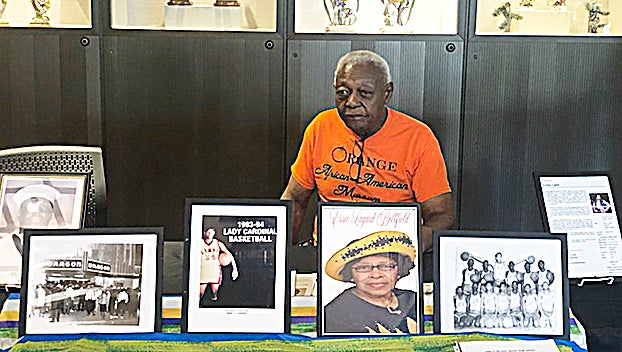Six hundred, three score and six and allocating resources
Published 7:30 am Saturday, October 21, 2017
By Bobby Tingle
Score is an interesting word. Currently, the Houston Astros are locked in a battle with the New York Yankees to determine which team will advance to the World Series. To advance one team must win four games out of a possible seven. The basic idea is to score more points than your opponent, which in baseball means crossing home plate more times than your opponent without getting put out.
The West Orange-Stark Mustangs football team is famous for its ‘salty’ defense. Effectively, in this case, salty has nothing to do with taste and everything to do with being stingy. They, historically, have not allowed their opponents to score many points. It is an excellent strategy for winning contests.
Score can also denote a group of twenty, such as years when speaking of the passage of time. When Abraham Lincoln began the Gettysburg Address he used the phrase ‘four score and seven years ago’ to mark the timing of his address. The day he delivered his address was eighty-seven years after the founding of the United States.
An audio recording of the book of Revelation from the Bible made in the United Kingdom employs the word score. The artist, as he reads the number of the mark of the beast of the earth, speaking in his British accent, six hundred, three score and six.
Score can also be a line etched across a piece of glass or drywall to enable a clean break when cutting it to fit a specific space.
There are other ways to use the word score. Context and intent inform the hearer or reader of the proper definition the speaker or writer intends.
Basic Economics is the title of a book authored by Thomas Sowell. Sowell is an economist who used his knowledge to teach others and write books. His book on economics was recently listed on a suggested reading list. It is not a new book. But according to the compiler of the list, it is worthy of your time and energy.
Sowell in his book takes an otherwise complicated subject and boils it down to an understandable phenomenon. He states a simple definition of economics as ‘the study of the use of scarce resources which have alternative uses.”
Don’t misunderstand, Sowell did not mean he understood how to control an economy. In fact, he uses over six hundred pages to logically consider, in seemingly every conceivable scenario, how utterly impossible it is for one person or group of people to control an economy. There are far too many independent decisions that chart the course for any human entity to manage or control.
So what? Glad you asked.
Orange County will change as a result of recent events. No one knows for certain all that will occur. A photography/gift shop is closing its doors. A glass company is also. Would they have closed their doors anyway? One business owner struggled for months to find an alternative to closing a location. But recent events pushed them to abandoning their efforts and focusing on better options. They aren’t going away, just refocusing.
Orange County is experiencing Sowell’s economics, namely the allocation of scarce resources, which have alternative uses.
There will be winners and losers. The variations in outcomes are just like the various definitions of the word score. How it all plays out will ultimately determine whether each of us benefit or not.
The reality is, not one of us, or any group of us, can control the outcome.
In two score years, we will know the final score of our most recent event. Then, the dust will be settled and hindsight will sharpen our vision. The resources will be allocated to their alternative uses and each of us will exert our will to achieve our best outcome. I suspect it will be good for most, because either we will win where we are or where we are reallocated.
Bobby Tingle is publisher of The Orange Leader. You can reach him at bobby.tingle@orangeleader.com.





